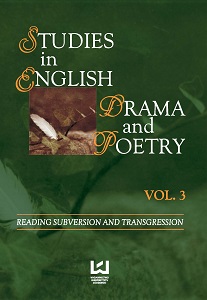
We kindly inform you that, as long as the subject affiliation of our 300.000+ articles is in progress, you might get unsufficient or no results on your third level or second level search. In this case, please broaden your search criteria.

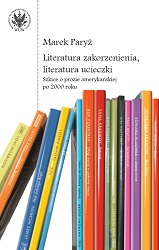
The author explores contemporary American fiction in its various contexts: social, historical, geographical, political. Every event or phenomenon that leaves an imprint in people's consciousness – to mention 9/11, the recession of 2008, or the expansion of the Internet - has a complex representation in literature.
More...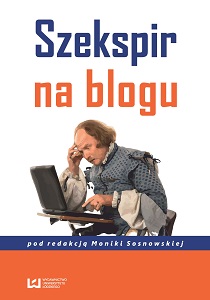
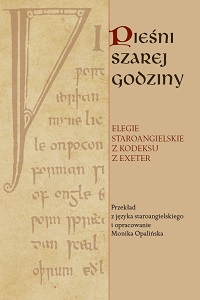
A translation and philological study of 7 lyrical poems from the Old English Exeter Book dated to the 10th century. The text of the works and the facsimiles of the 17 pages on which they had been written present the poems in their original form, emphasizing the manuscript context of these works and the archaic form of early medieval English. The poems are an example of early medieval literature in a vernacular language as well as an element of English literary culture. They feature the themes of the loneliness of the wanderer and the prayers of the pilgrim, as well as of love, loyalty, hatred, humility and pride, and of man in the face of God’s glory and history.
More...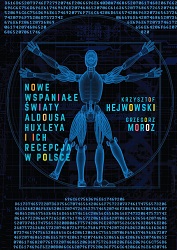
The first Polish presentation of the whole literary output of Aldous Huxley (1894-1963), outstanding British novelist and essayist, the author of Brave New World (1932) – a dystopia considered to be one of the most important books of 20th century. The authors discuss Huxley’s novels and non-fiction, taking into consideration the most recent publications of both Polish and English-speaking literary scholars. The book also describes the history of Polish translations of Huxley’s works as well as their reception in Poland, paying particular attention to two Polish translations of Brave New World.
More...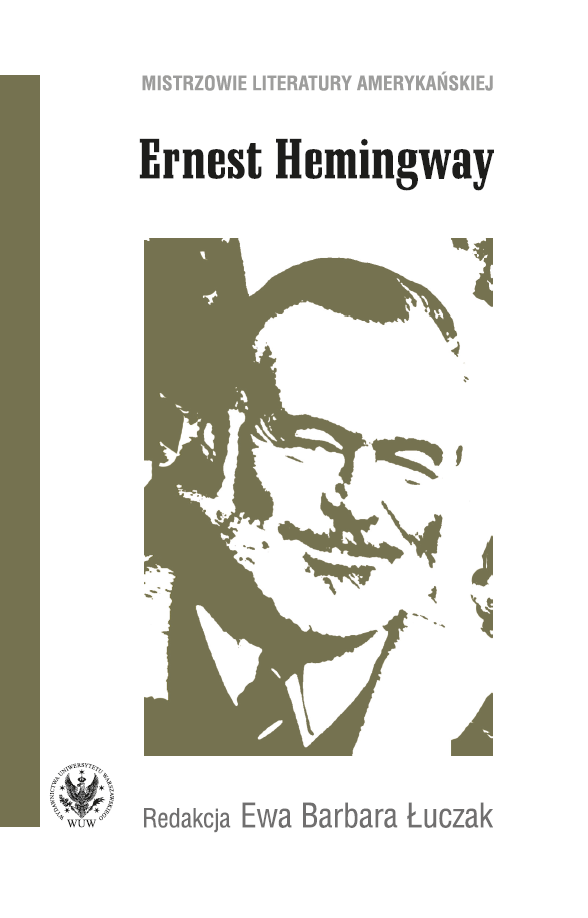
This collection of essays reflects the directions of contemporary criticism of Hemingway’s prose and represents diverse critical strands and approaches. Aiming at critical variety over consensus, the authors demonstrate the rich legacy of the master from Key West and hope to convince the reader that Hemingway’s prose can still hold its appeal.
More...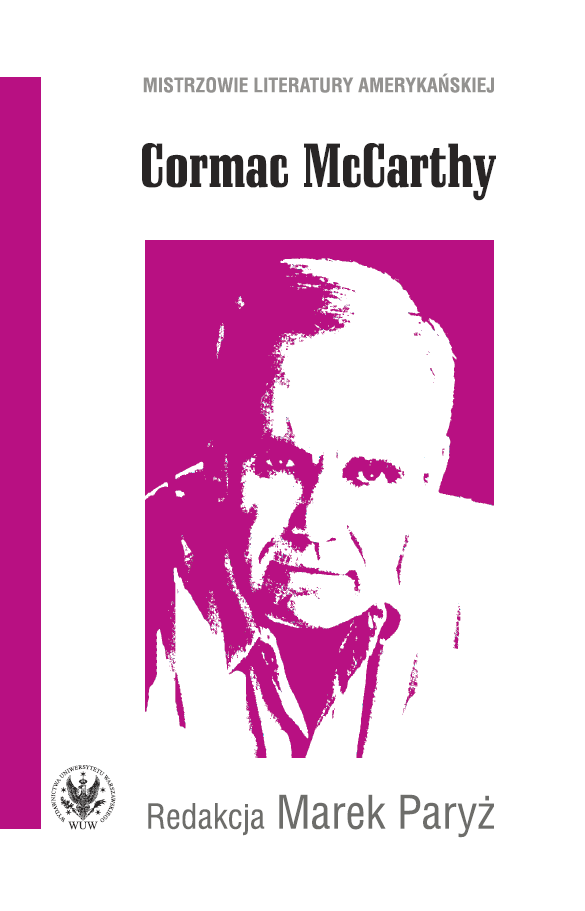
A book from the “Masters of American Literature” series, devoted to the works of Cormac McCarthy, considered one of the four most important contemporary American novelists. His early novels are part of the literary tradition of the South, and they reflect the fact that the writer’s roots are firmly embedded in archetypal, symbolic, and mythical constructions. In his later works he refers to the Western style.
More...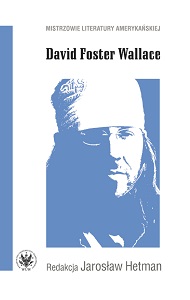
The first Polish study on the work of one of the most significant American authors of the turn of the centuries offers an overview of Wallace's oeuvre featuring its major themes, recurrent in a variety of contexts, important philosophical influences, and characteristic qualities of his poetics.
More...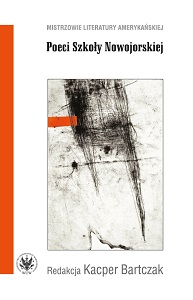
This publication contains essays devoted to the poetry of John Ashbery, Frank O’Hara, James Schuyler, Kenneth Koch, and Barbara Guest – poets whose talents flourished in the rich environment of the 1950’s and 1960’s New York, when a complex intersection of artistic and institutional influences led to the outburst of an avant-garde renaissance.
More...
This study concentrates on selected contemporary British novels which rewrite (or “echo”) two biblical myths and the myth of the Bible. It sees biblical rewritings by Winterson, Burgess, Roberts, Crace, Alderman and Pullman as critical reflections on the contemporary crises in the understanding of British national identity, women’s relationship and British liberal tradition. These novels examine and criticise biblical myths/the myth of the Bible, and rework them in “weak”, undogmatic ways to articulate a more fluid and fragile idea of community. Such weak, undogmatic, self-conscious and critical revisions of biblical myths offered in the biblical rewritings are called in this book “the echoing myths”.
More...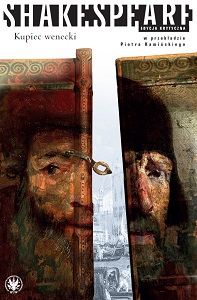
A play written by William Shakespeare, in a new translation by Piotr Kamiński. Critical edition with commentary.
More...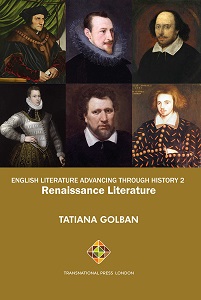
The present book is second in a series of works which aim to expose the complexity and essence, power and extent of the major periods, movements, trends, genres, authors, and literary texts in the history of English literature. Following this aim, the series will consist of monographs which cover the most important ages and experiences of English literary history, including Anglo-Saxon or Old English period, the Middle Ages, the Renaissance, the Restoration, neoclassicism, romanticism, Victorian Age, and the twentieth-century and contemporary literary backgrounds. The reader of these volumes will acquire the knowledge of literary terminology along with the theoretical and critical perspectives on certain texts and textual typology belonging to different periods, movements, trends, and genres. The reader will also learn about the characteristics and conventions of these literary periods and movements, trends and genres, main writers and major works, and the literary interaction and continuity of the given periods. Apart from an important amount of reference to literary practice, some chapters on these periods include information on their philosophy, criticism, worldview, values, or episteme, in the Foucauldian sense, which means that even though the condition of the creative writing remains as the main concern, it is balanced by a focus on the condition of thought as well as theoretical and critical writing during a particular period.
More...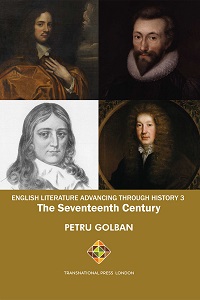
The present book is third in a series of works which aim to expose the complexity and essence, power and extent of the major periods, movements, trends, genres, authors, and literary texts in the history of English literature. Following this aim, the series will consist of monographs which cover the most important ages and experiences of English literary history, including Anglo-Saxon or Old English period, the Middle Ages, the Renaissance, the Restoration, neoclassicism, romanticism, Victorian Age, and the twentieth-century and contemporary literary backgrounds. The reader of these volumes will acquire the knowledge of literary terminology along with the theoretical and critical perspectives on certain texts and textual typology belonging to different periods, movements, trends, and genres. The reader will also learn about the characteristics and conventions of these literary periods and movements, trends and genres, main writers and major works, and the literary interaction and continuity of the given periods. Apart from an important amount of reference to literary practice, some chapters on these periods include information on their philosophy, criticism, worldview, values, or episteme, in the Foucauldian sense, which means that even though the condition of the creative writing remains as the main concern, it is balanced by a focus on the condition of thought as well as theoretical and critical writing during a particular period.
More...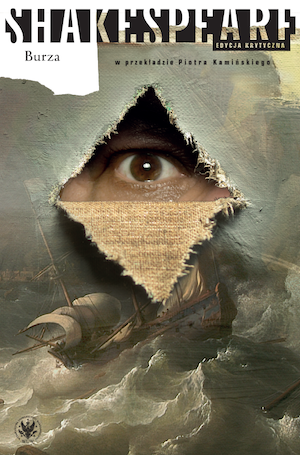
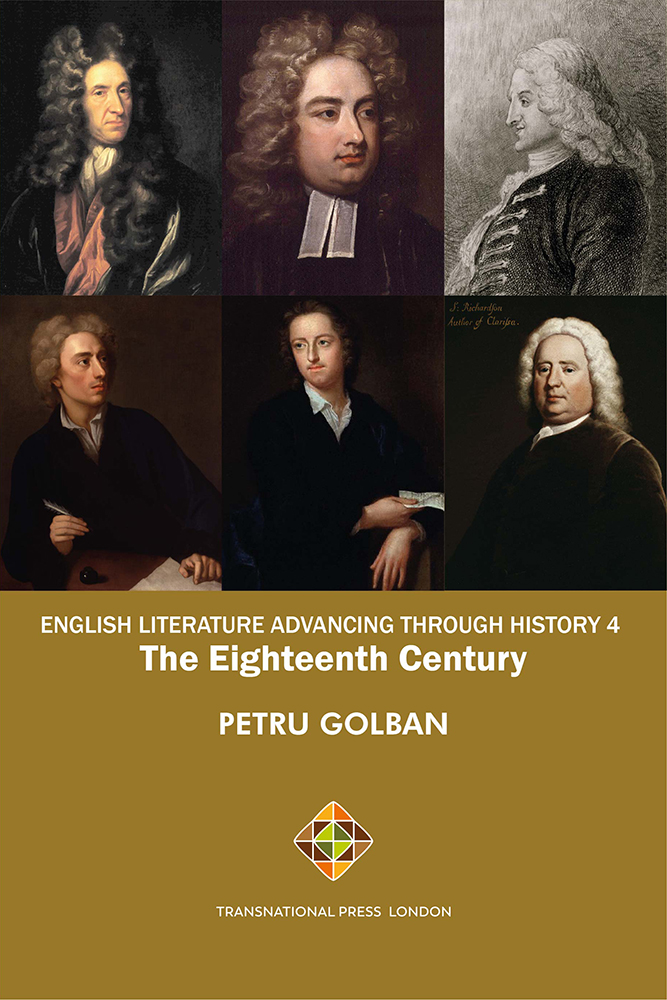
It appears that literary work possesses eternal temporal validity due to its autonomous aesthetic value, whereas criticism provides points of view having temporary and transitory significance. Despite such claims, the vector of methodology in our series of books, dealing with the history of English literature, relies on Viktor Shklovsky, T. S. Eliot, Mikhail Bakhtin, and especially Yuri Tynyanov, whose main reasoning would be that literature is a system of dominant, central and peripheral, marginalized elements – to us, “tradition” (centre) versus “innovation” (margin) engaged in a “battle” for supremacy, demarginalization, and the right to form a new literary system – and the development or historical advancement of literature is the substitution of systems. Roman Jakobson and French structuralism, on the whole, later Linda Hutcheon, with her “system” and “constant”, and Bran Nicol with the “dominant”, to say nothing about Itamar Even-Zohar and his theory of polysystem, to a certain extent Julia Kristeva, and even Homi Bhabha – as well as our humble contribution, we would like to believe – maintain Tynyanov’s line of thinking and concepts alive, which have developed and emerged nowadays more like a kind of “neo-formalism”. Focusing on literary practice, applying critical theory and emerging from within our own teaching experience, the books in the present series are theoretical and surveyistic, like a monograph, whereas their more practical and text-oriented aspect should appeal as a student handbook for didactic purposes, in which certain literary works belonging to various writers of different trends, movements, and periods are analysed and compared with regard to their source, form, thematic arrangements, ideas, motifs, character representation strategies, intertextual perspectives, structural or narrative techniques, and other aspects.
More...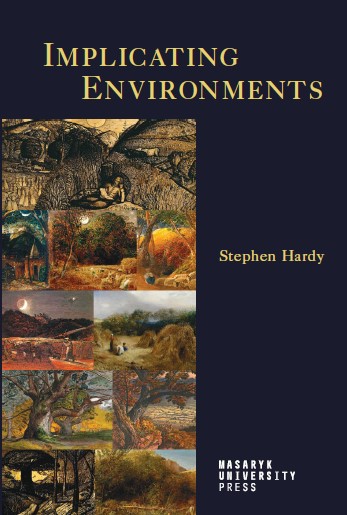
The book seeks to examine and explore aspects of contemporary and historical natural, social and cognitive environments through a series of partly comparative readings of pertinent aspects of philosophy, environmental studies, literary criticism, poetry, cultural history and literary, cultural and spatial theory. Writers whose work is focused upon include Peter Ackroyd, Andrew Bowie, Paul Carter, Gilles Deleuze and Félix Guattari, Edward Dorn, Michael Hardt and Antonio Negri, David Jones, Niklas Luhmann, Andrew McMurry, Charles Olson, Camille Paglia, J.H. Prynne, Baruch Spinoza, and Raymond Williams.
More...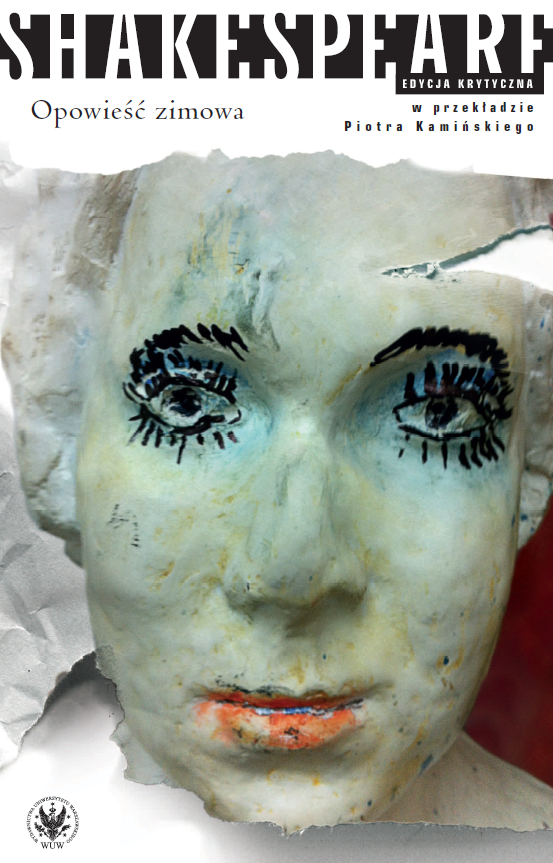
Strong, fluent and precise translation by Piotr Kamiński, accompanied by an incisive preface and commentary by Anna Cetera-Włodarczyk, with a beautiful book design by Maciej Buszewicz. The edition includes footnotes and the lists of Polish translations and productions of "The Winter’s Tale". In The Winter’s Tale a farcically jealous lover declares himself a prophet: "How blest am I in my just censure, in my true opinion! Alack, for lesser knowledge! How accursed in being so blest! (2.1) This sudden surge of Leontes’s supernatural powers seals the fate of his Queen. We can see her briefly when she cuddles her little son but soon afterwards the Sicilian oikos crumbles: their home, their family are all gone. From now on Hermione assumes her part in an ancient tragedy and the plot plunges into pathos. She defends herself with stunning dignity, goes into labour and childbirth, appears at court, and, finally, falls unconscious. Even her offstage death is complaint with ancient conventions which refuse to turn death into a spectacle. (Preface by Anna Cetera-Włodarczyk)
More...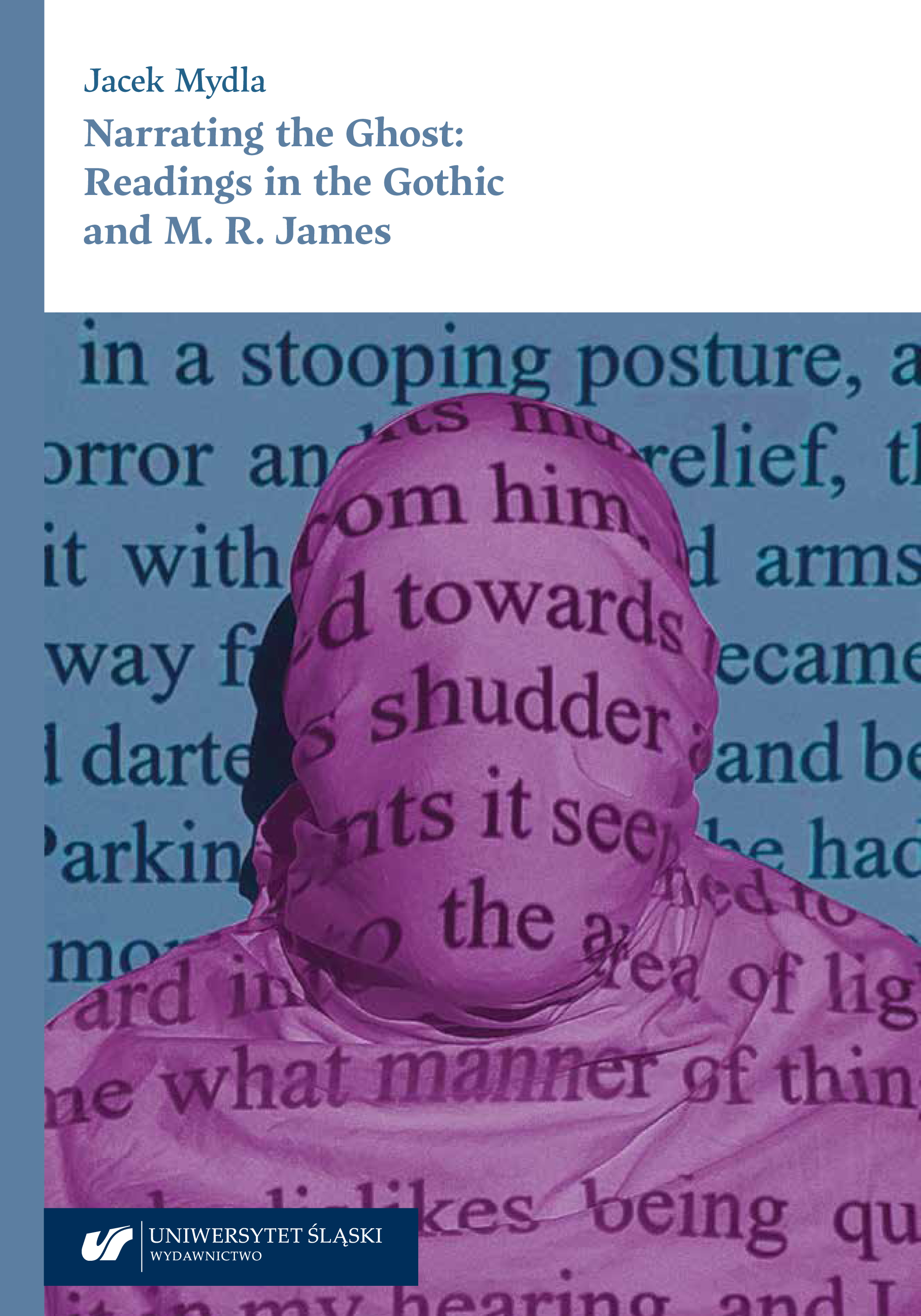
Jacek Mydla’s main goal in Narrating the Ghost: Readings in the Gothic and M. R. James is to explore selected “Gothic” narratives and Montague Rhodes James’s (1862–1936) ghost stories by means of the tools of narrative theory. Using these tools, Mydla identifies and describes the narrative technique of the classic ghost story, a literary genre of which, in popular recognition, M. R. James is one of the most prominent representatives. A guiding category is that of distance, which binds the analyses together and justifies the division of the book into two parts. In Part I, the author focuses on the ideological meaning of distance, which animated the rise and future development of the literary Gothic in England of the “Enlightenment” (second half of the seventeenth century) and the Victorian period (second half of the nineteenth century) England. In Part II, the author examines M. R. James’s use of a wide range of distancing devices whose main purpose was to transform readers into ghost-seers, a category in common use in contemporary subject literature. Mydla’s goal is to create a platform for the encounter between narrative theory and the ghost story. He shows that such encounter and dialogue can be productive, and in this way fills the gap in research caused by the fact that narrative theory, for a considerable period of its development, focused on realistic fiction. The motivation behind the analyses undertaken in this study is the desire to estimate the extent to which narrative theory can be applied productively to genres such as the mystery story, terror fiction and weird fiction and, more generally, the literary Gothic. M. R. James successfully made ghostly storytelling the chosen province of his activity as fiction author (which occupied him for more than twenty years), which may be an indication that ghost stories are a genre using their own narrative rhetoric.
More...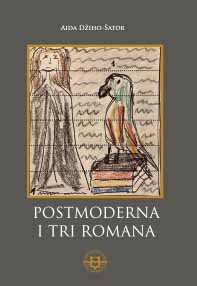
The monograph Postmodernism and Three Novels focuses on the research of postmodernism within British literature in the form of an exhaustive analysis of formal, stylistic and thematic features represented in the novels of representative authors of British postmodernism. The authors and novels that the book focuses on are: The Golden Notebook, by Doris Lessing, The French Lieutenant's Woman, by John Fowles, and Flaubert's Parrot, by Julian Barnes. The book investigates in detail and differentiates the key postmodern literary techniques, means and strategies that provided postmodern literature in general and British postmodern literature in particular with the attributes of experimentalism and innovation, after which it provides a detailed description of these techniques in the given novels.
More...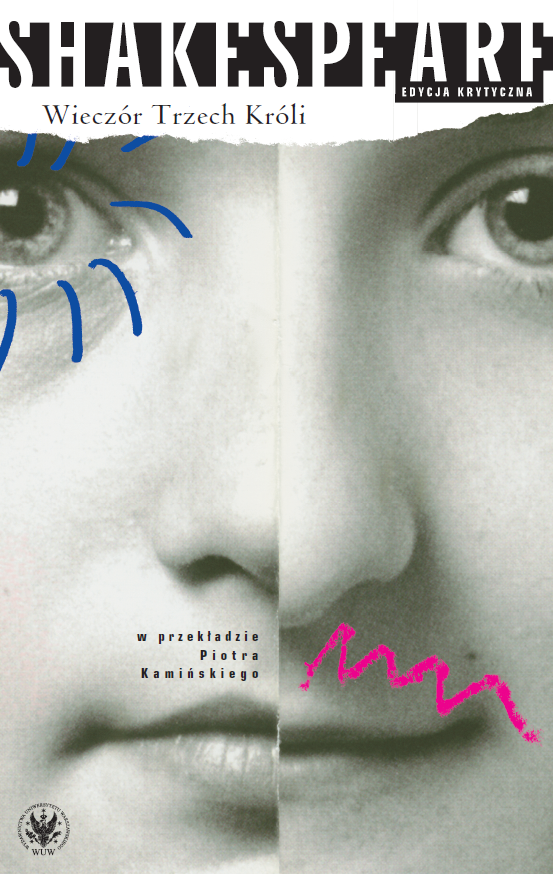
Strong, fluent and precise translation by Piotr Kamiński, accompanied by an incisive preface and commentary by Anna Cetera-Włodarczyk, with a beautiful book design by Maciej Buszewicz. The edition includes footnotes and the lists of Polish translations and productions of "Twelfth Night".
More...